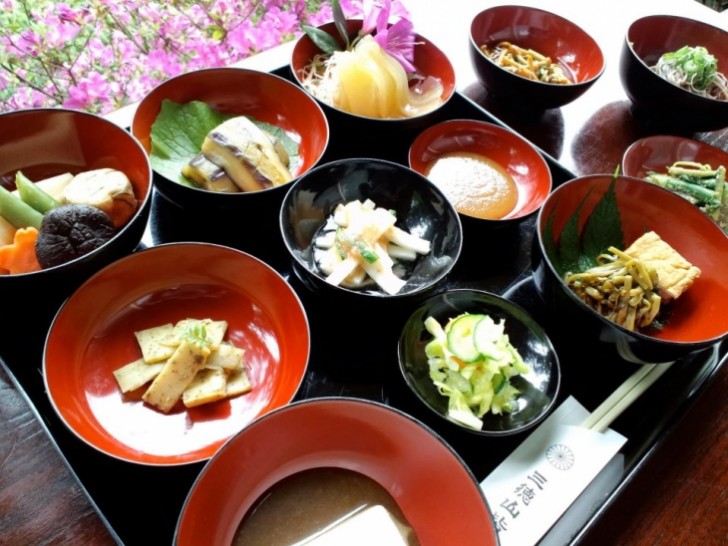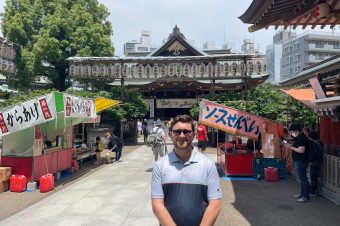There are many factors that go along with becoming a Buddhist monk. It is generally understood that monks live drastically different lifestyles than most people, however, people rarely consider their diets. Along with the other unique aspects of their lives, monks also have to keep a very strict and unique diet. This diet is solely vegetarian and vegan, and in Japanese it is called “Shojin Ryori.”
Shojin Ryori, or Buddhist vegetarian cuisine, is also found in all other East Asian Buddhist countries. However, these countries have different names for the cuisine in their own languages. The style of the cuisine can also vary greatly depending on the country; however, it still holds the same basic principles.
The translation of “Shojin Ryori” is “devotion food.” This is because the cuisine is intended to pay respect and be in alignment with Buddhist values and religion. The Buddhist religion does not believe in violence, for example, the killing of animals for food. The religion also greatly respects and worships nature, and therefore, Buddhists believe consuming nature’s food will bring them great health and power.
While the practices of Buddhist vegetarian cuisine varies based on location and sect, it is very common for East Asian Buddhists to have on significant difference from Western vegetarians- to avoid the harming of plant life. In order to do this, Buddhists avoid eating any root vegetables, such as potatoes, onion or garlic, because this prevents the growth of a plant. The rules about what kind of vegetable should be used is depending to the local tradition.
In the preparation of the cuisine, Buddhists believe that it is very important to keep the cooking practices simple, wholesome and attentive to the quality and flavor that comes naturally from the earth. Therefore, Shojin Ryori sometimes smells strongly and stimulate a clear mind without worldly desires.
Depending on the sect of Buddhism and the location of the temple, the act of consuming the cuisine can also vary. In all cases, however, the eating practices are incredibly intricate, respectful, and filled with worship. If you ever find yourself in the position in which you are able to try Buddhist cuisine, it is certainly the experience of a lifetime and should not be missed.
The term “Shojin” is a Buddhist term meaning “the effort to truly understand Buddhist traditions and the Buddhist religion in order to cross over to Nirvana.” Therefore, “Shojin Ryori” is the food-based training of Buddhism. Both eating Shojin Ryori, as well as preparing it, are parts of Buddhist training. The word “Shojin” has four different meanings:
1) The effort of practicing of Buddhist teachings
2) The purification of both mind and body by behaving a certain way
3) Eating a vegetable-based diet instead of consuming meat
4) Putting deliberate effort into everyday behavior
When we talk about Shojin Ryori, we are talking about the food monks must eat in order to train in the Buddhist religion. This is the difference between normal vegetarian food and Buddhist cuisine.
What can we learn from Buddhist training? Buddhism is the way to find peace within oneself, and Shojin Ryori supports the mind and body in this process. Furthermore, it is less important what to eat, but rather how to eat. Even if you eat the same vegetable, it is important to understand the purpose of eating it and the way you arrange the food. To understand the relationship between the food and yourself is extremely important. Therefore, both what you eat and how you eat it is what makes up Shojin Ryori.
These are the temples that serve Buddhist cuisine (Shojin Ryori). The atmosphere of all of them is marvelous. You must make a reservation in advance. Check out their email and phone number below.
1.Komyoji temple.

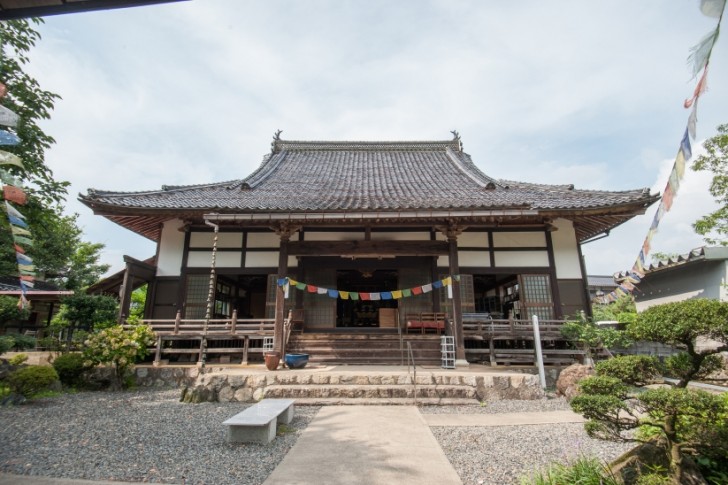
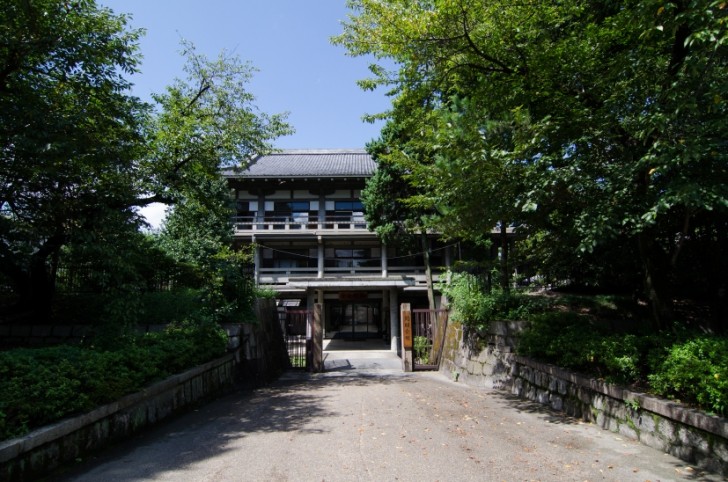
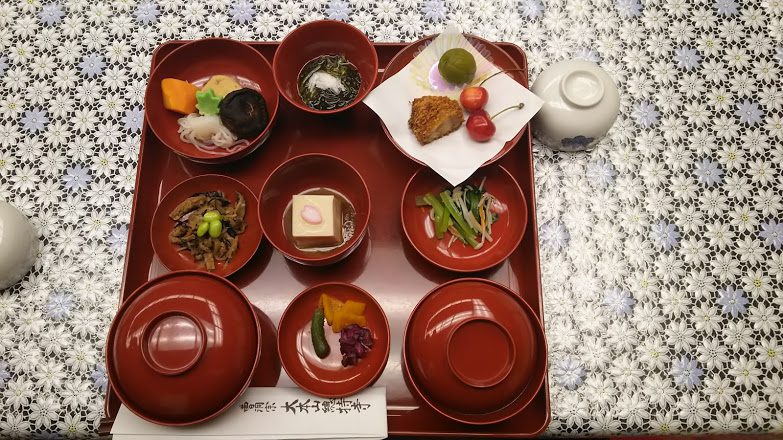
-728x516.jpg)
